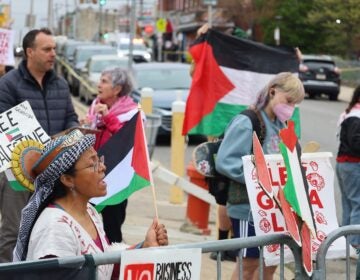For marchers from Pennsylvania, a plan for translating personal pain into action
-
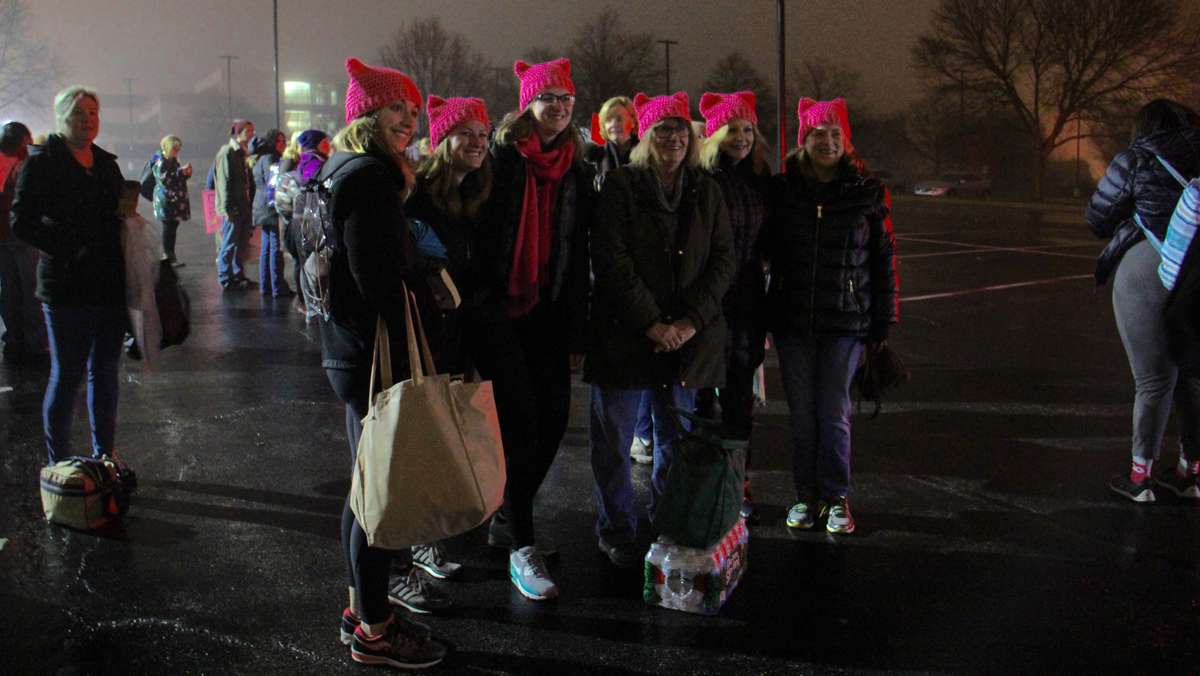
-

-
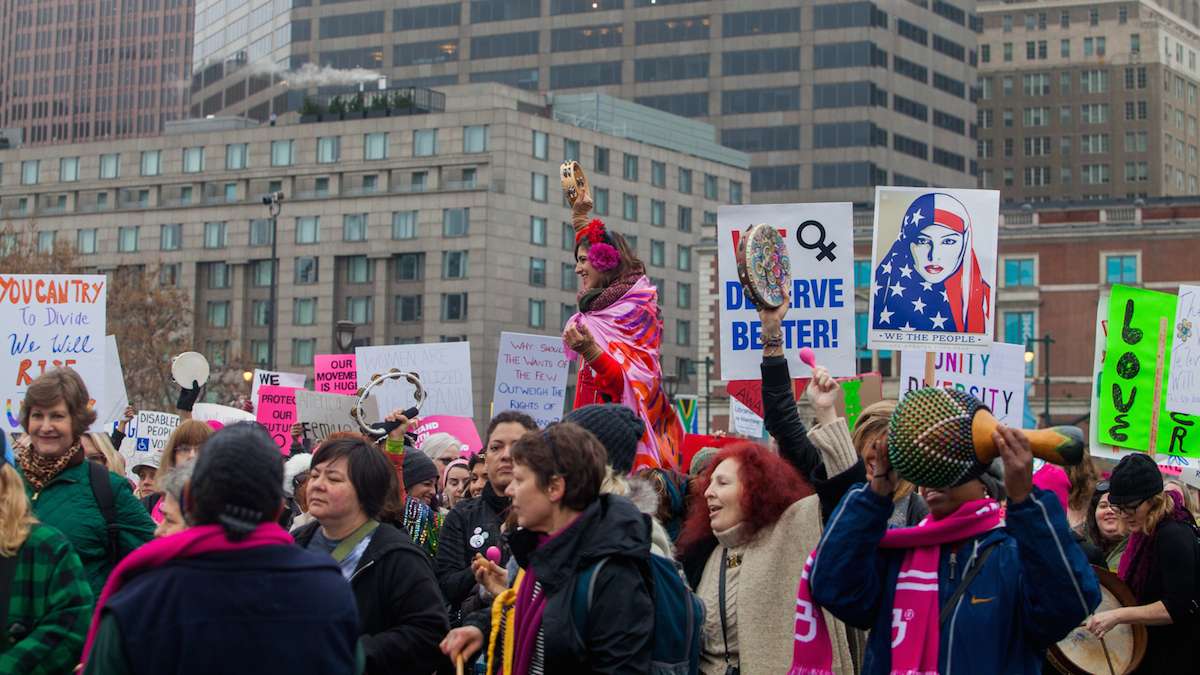
-

-
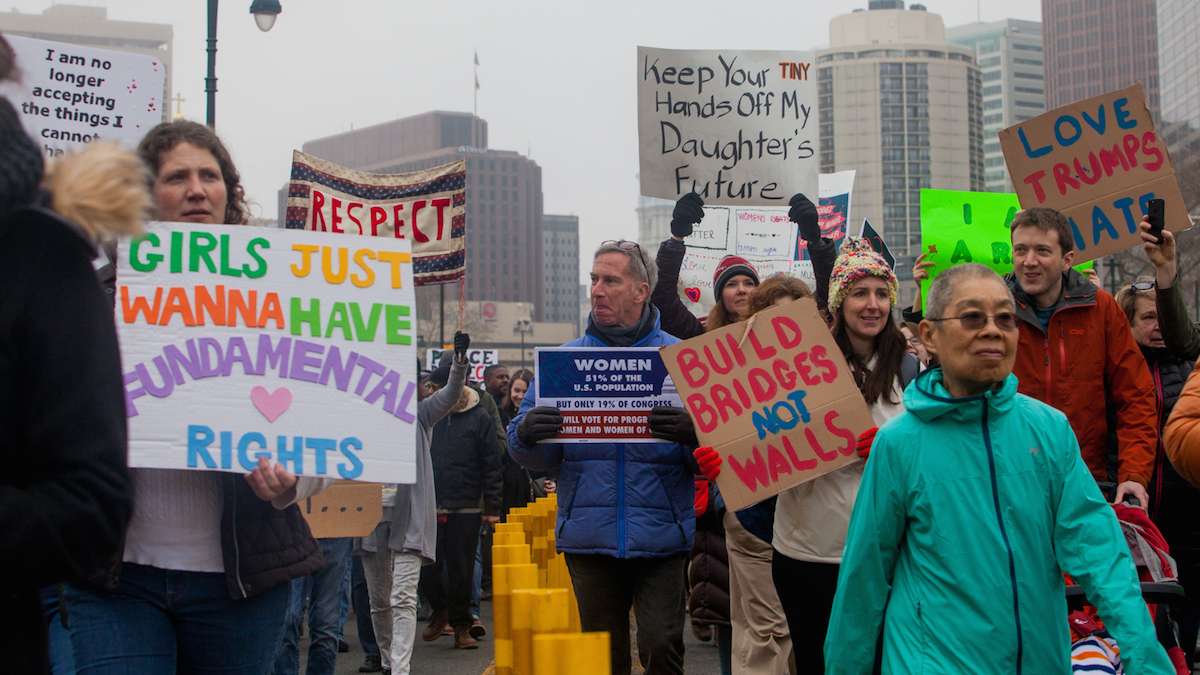
-
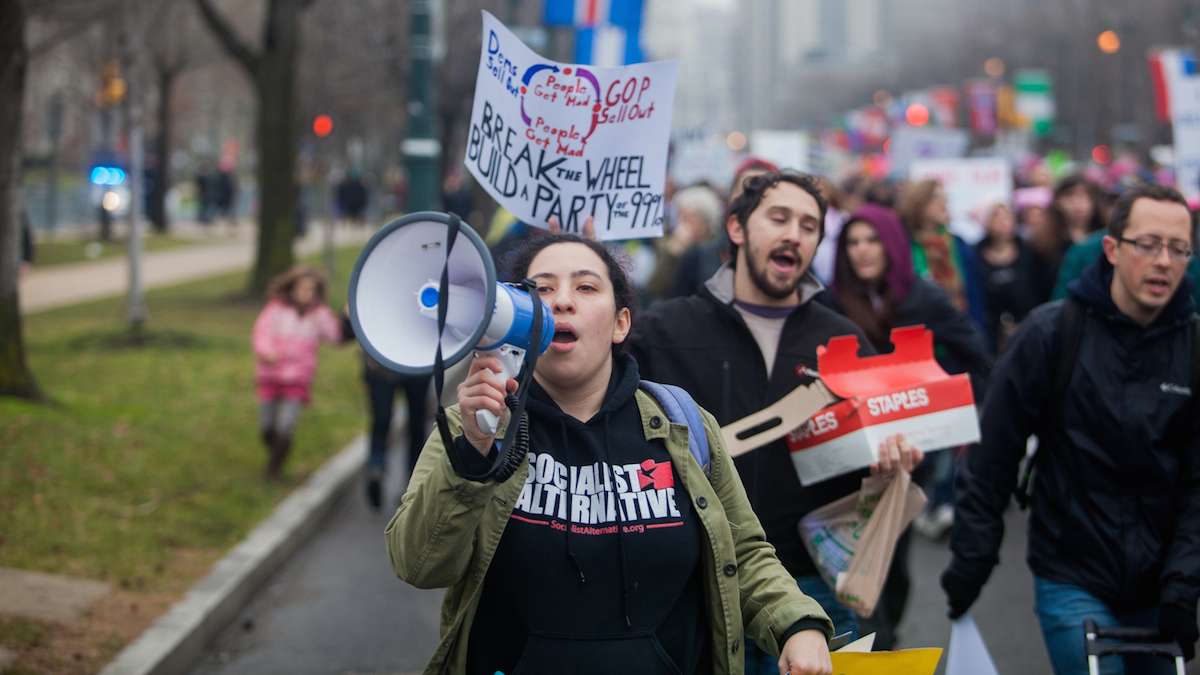
-

-
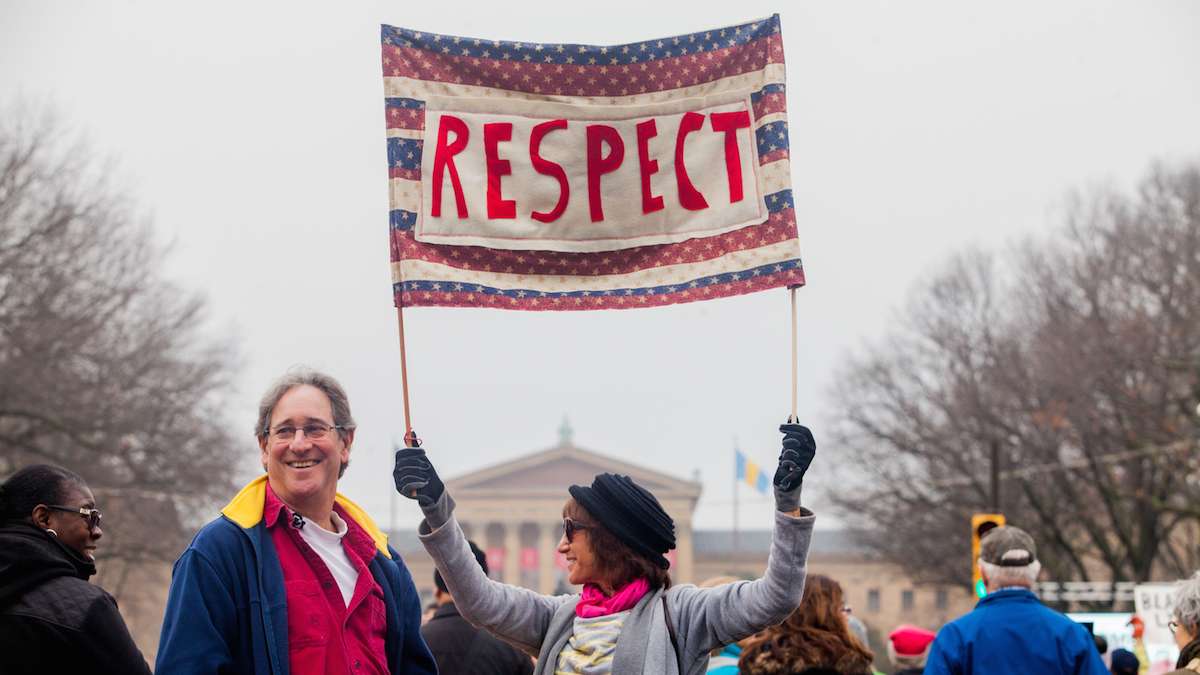
-
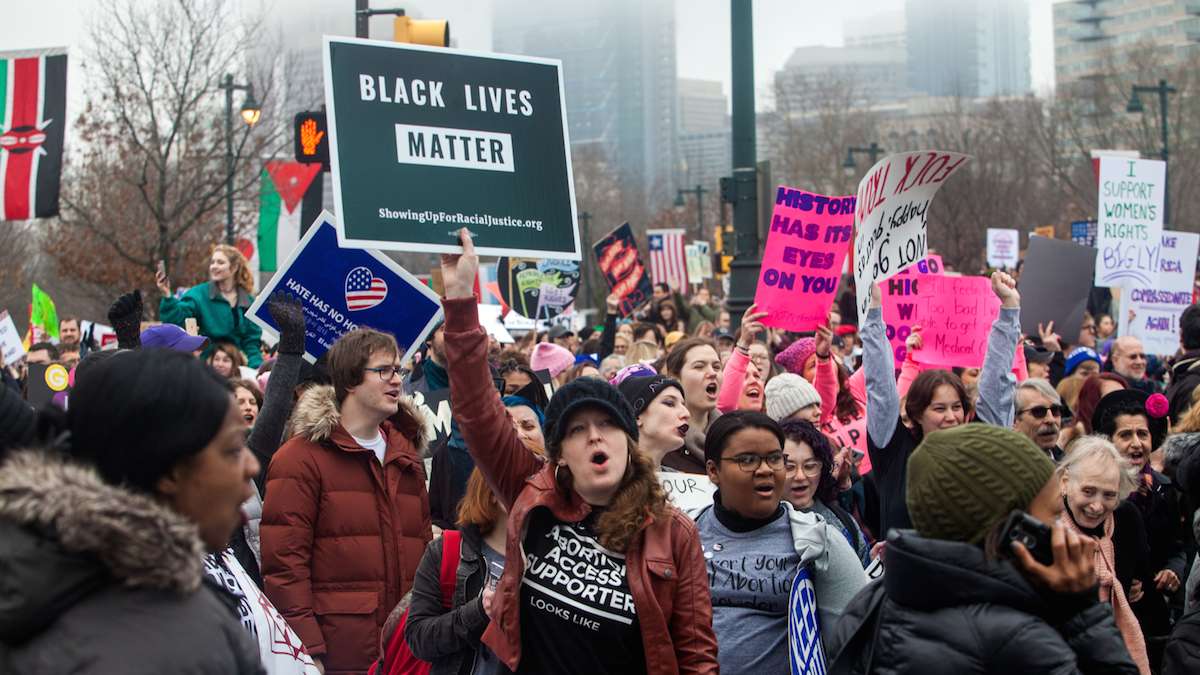
-
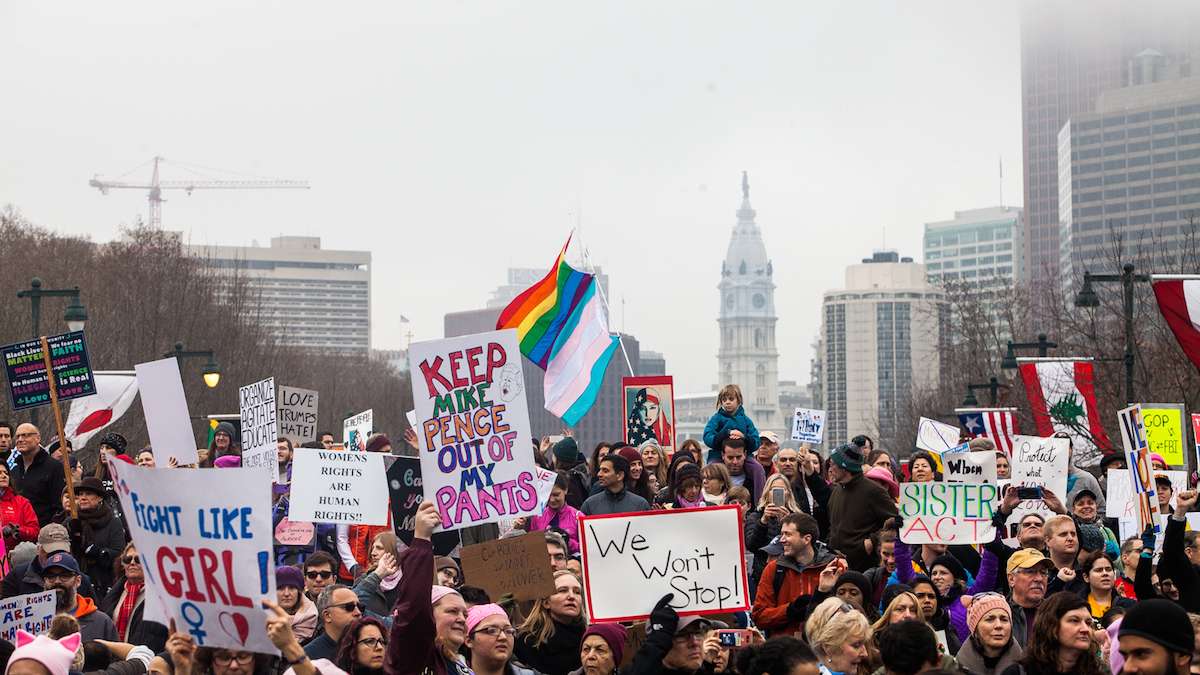
Protesters are shown gathered on the Benjamin Franklin Parkway for the Women's March in Philadelphia on Saturday, Jan 21, 2017. (Brad Larrison for WHYY)
-
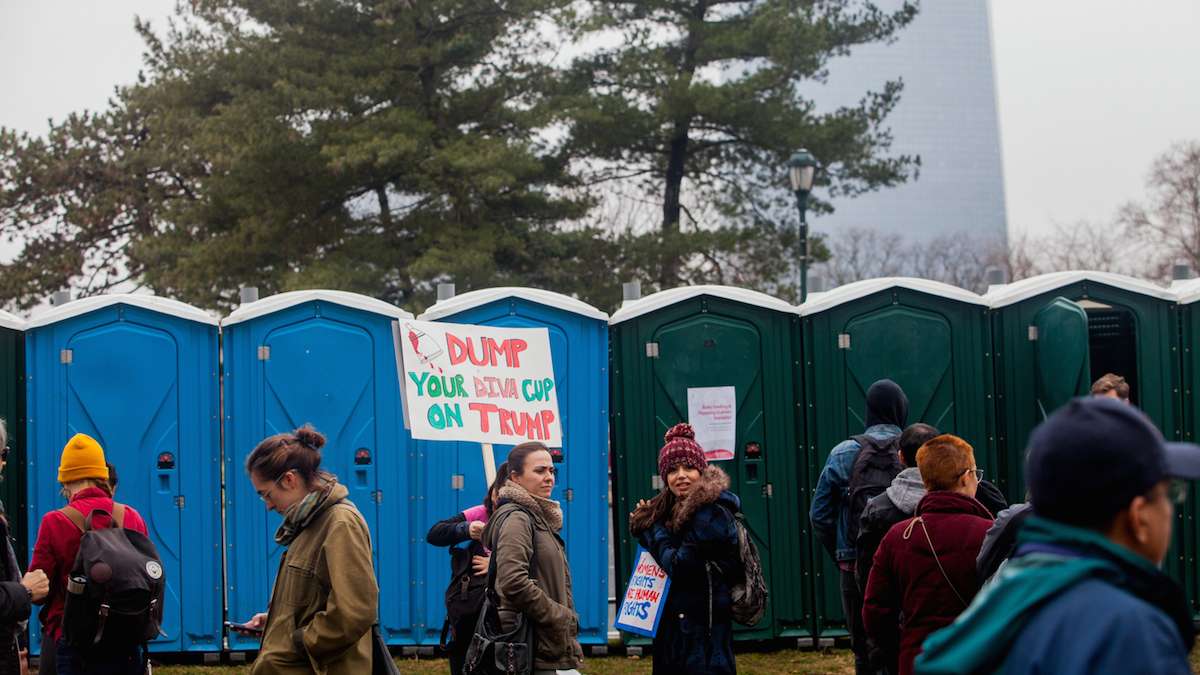
-
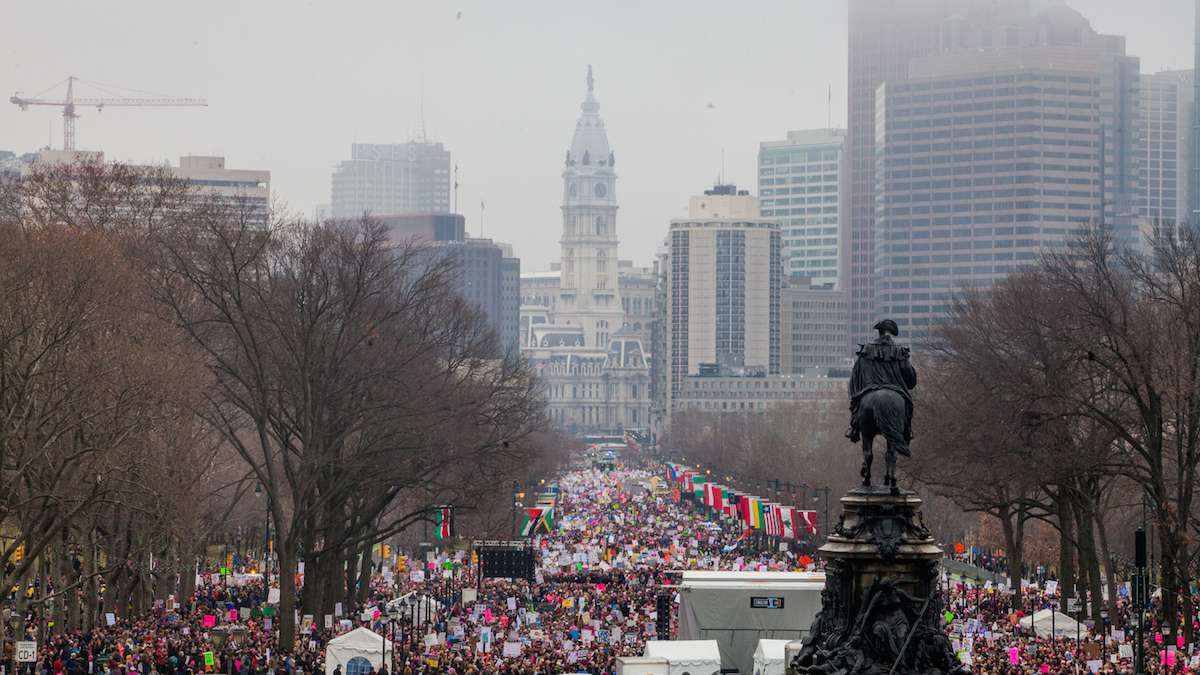
Thousands gathered on the Ben Franklin Parkway the morning of Saturday, January 21, for the Women's March in Philadelphia. (Brad Larrison for NewsWorks)
-

-
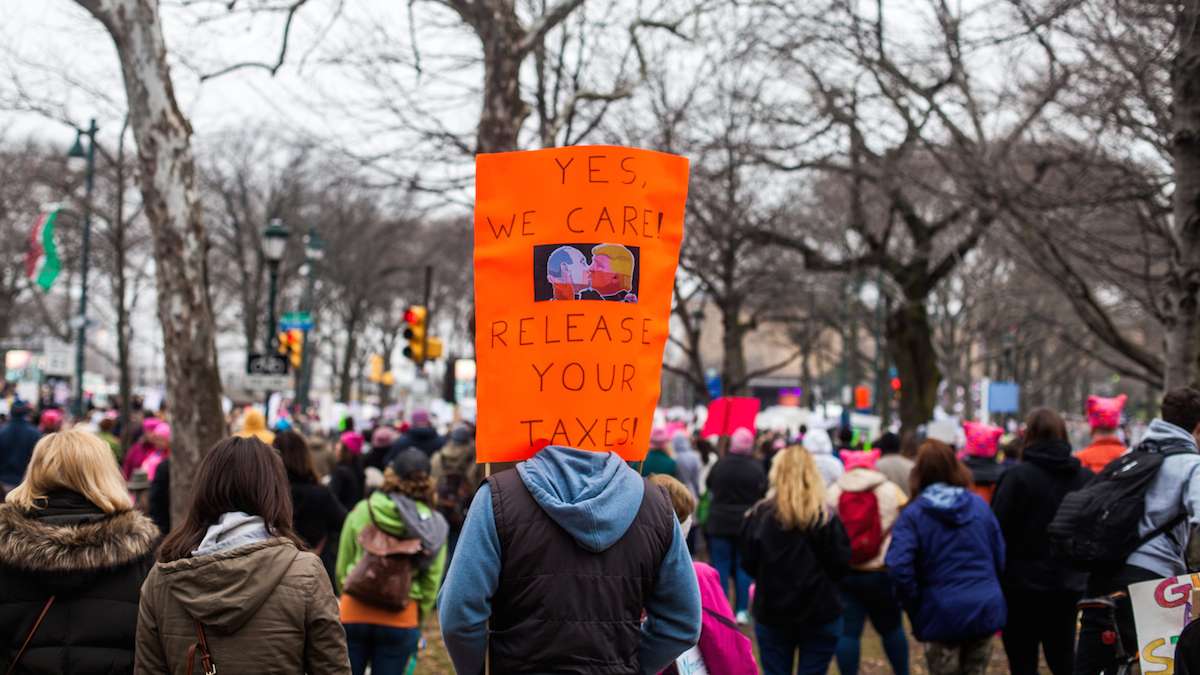
-
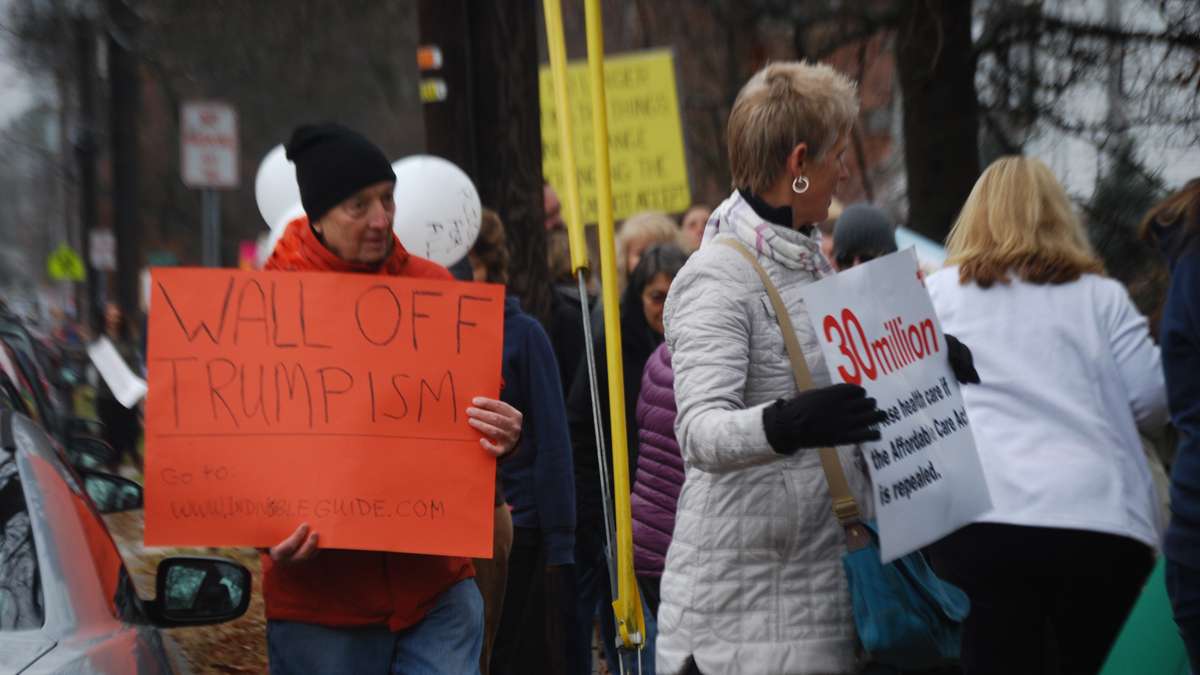
-
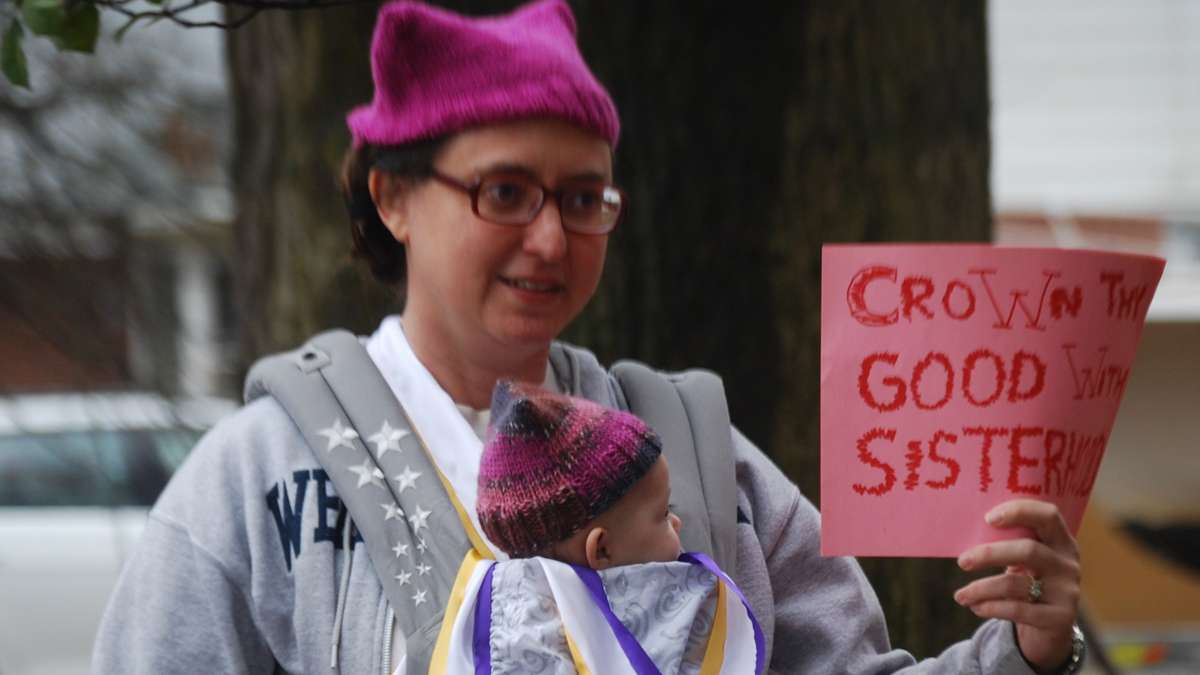
-
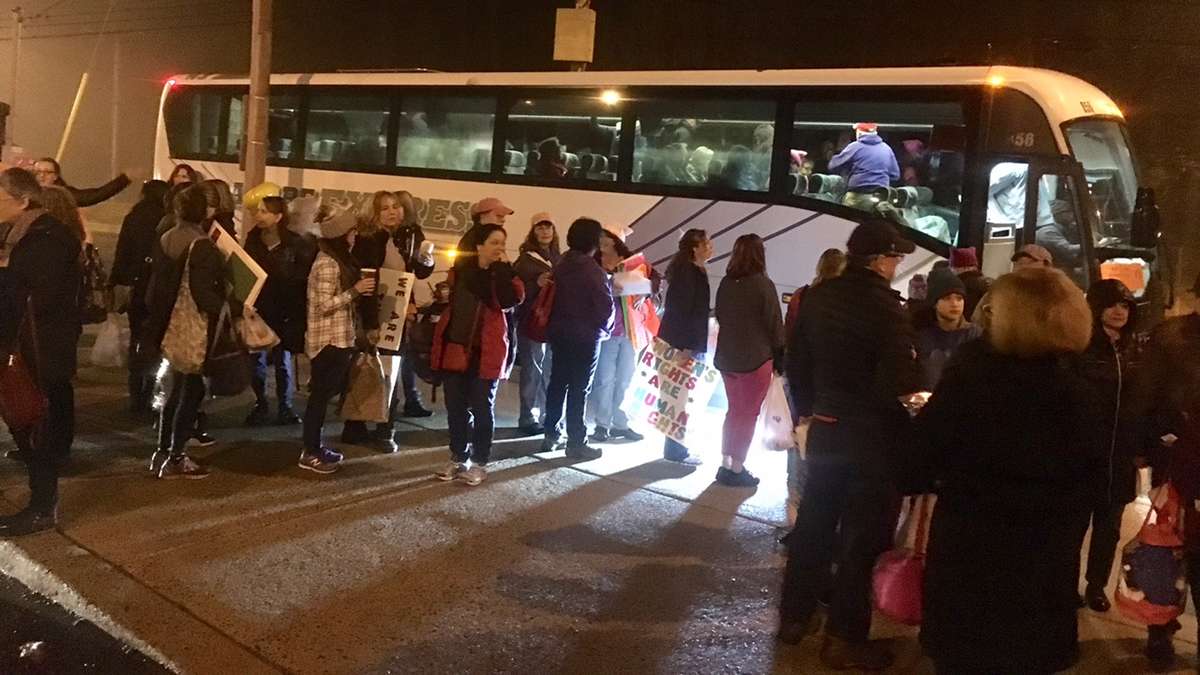
-

-
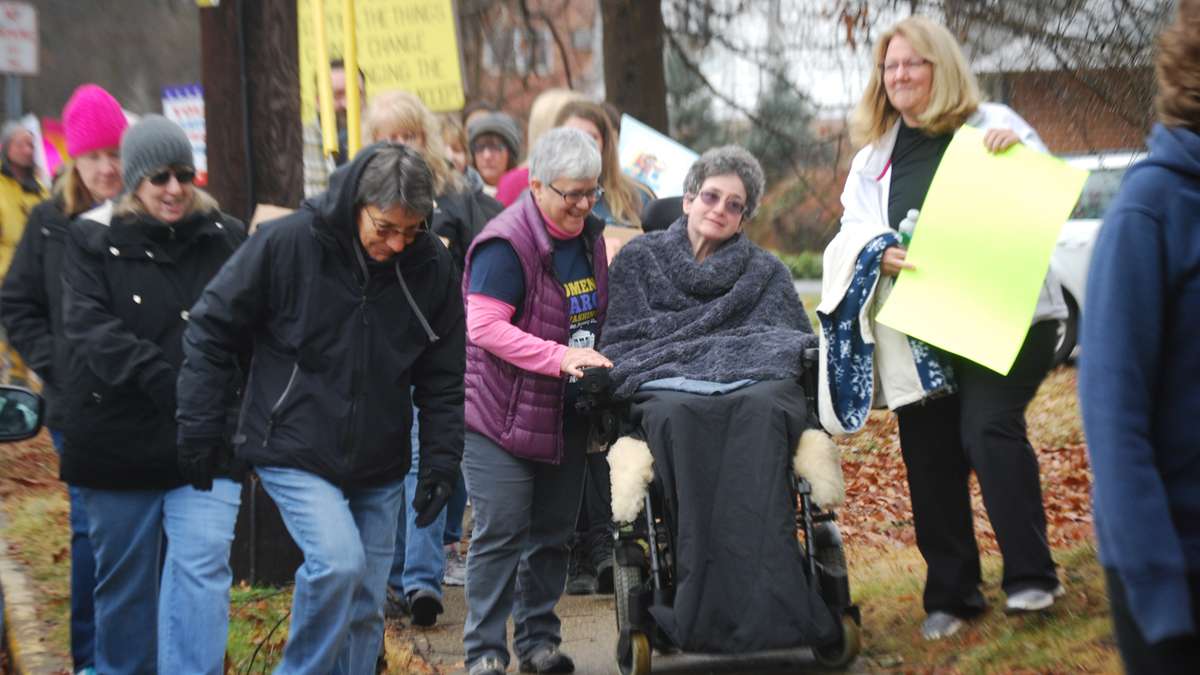
-
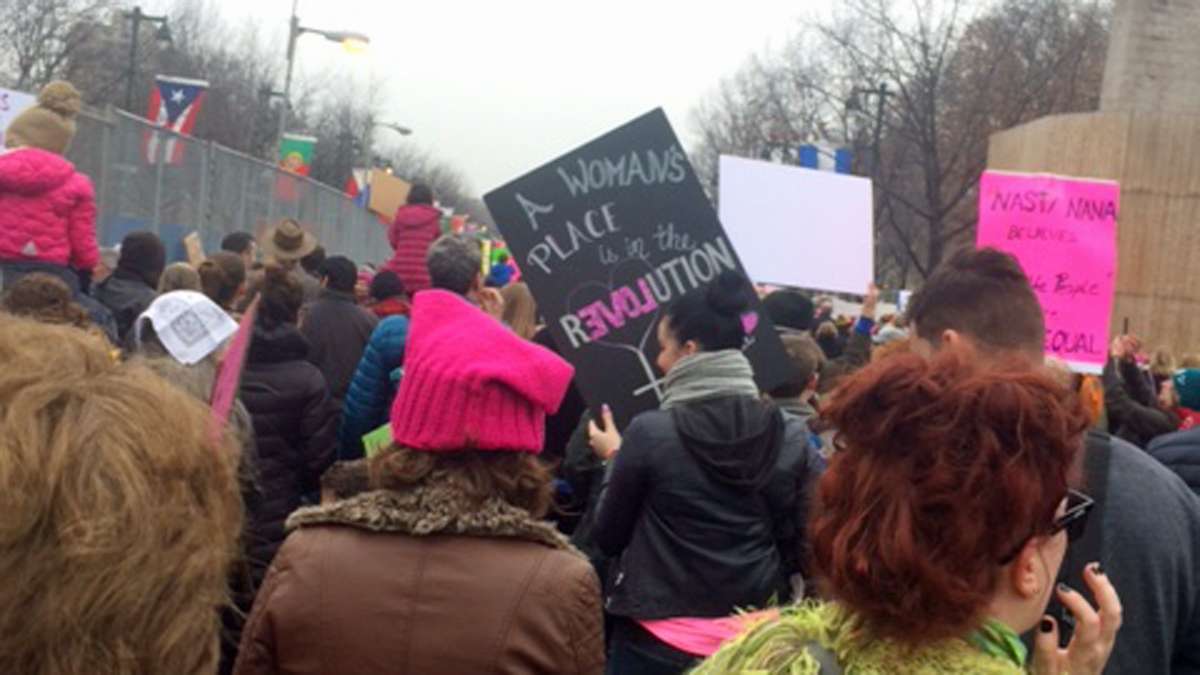
-

-
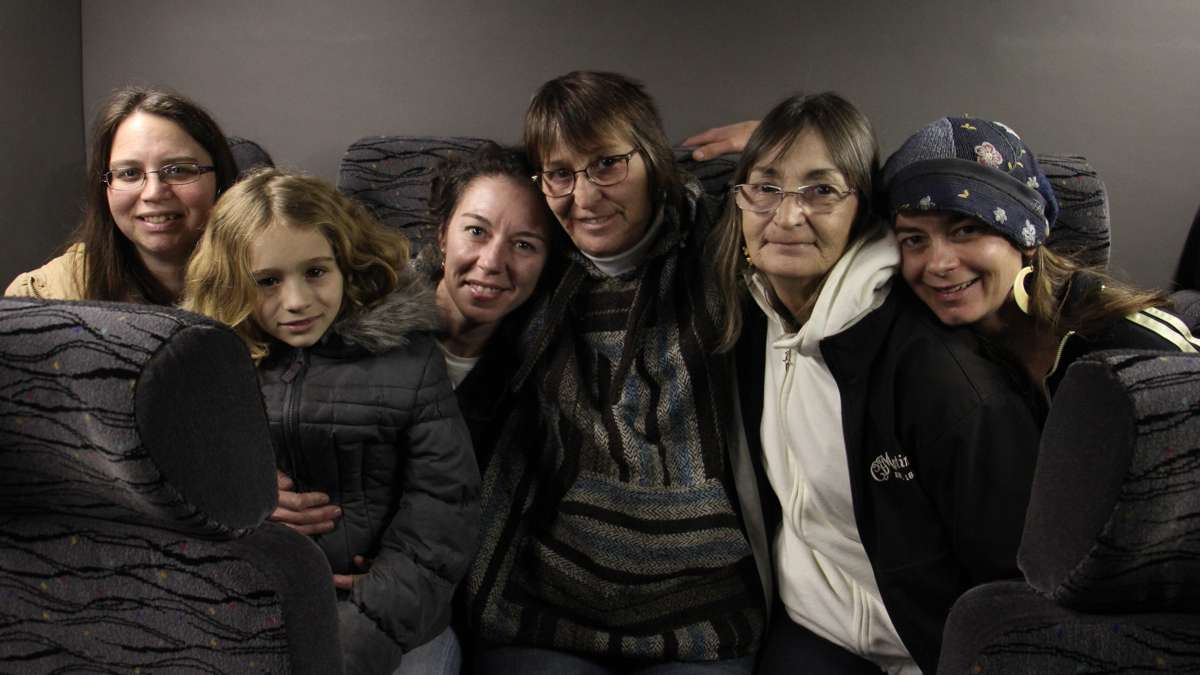
-

Marchers stand shoulder to shoulder on Independence Avenue during the Women's March on Washington. (Emma Lee/WHYY)
-

Sitting on a bus headed south on I-95 Saturday morning, 50-year-old Cheryl Sabb has to think about whether she’s ever participated in a political rally before.
“No,” she said finally, turning around in her chair to speak over the back of her bus seat. Work or time or money always kept her from marching, she said, but “I’ve always wanted to.”
Sabb is one of 22 women on the bus, and of about 130 who left from the Chester County Government Services Center parking lot before the first rays of the sun cracked the black, misty sky.
By now, official reports show more women than expected turned out for the Saturday’s March on Washington — around half a million — twice the size of estimates going into the weekend.
What these women (and men) marched for runs the gamut from inclusive immigration policy, to women’s health, to LGBT rights, to changing the role of money in politics. From this grab bag of causes, organizers hope to pull common threads and turn momentum into sustained action.
That’s a tall order, but some who marched say this is the beginning of them pushing publicly on issues that affected them personally.
For Sabb, whose bus ticket was sponsored by donations to the Women’s March group in Chester County, those issues include domestic violence, the social safety net and equal pay.
“When I moved into low income housing with my son, all I had was two mismatched folding chairs, a 13″ TV, and a twin sized bed for him,” she said, recounting her journey away from an abusive husband.
Sabb, originally from Southwest Philadelphia, had moved to Delaware County and later Chester County. That is where she was living when she left her husband. There, she leaned on public assistance for housing and utilities, as well as area nonprofits, to help her get back on her feet.
Today, Sabb has remarried and is working as a school bus driver, as well as a part-time employee with the same social service organizations that helped her become financially independent.
Sabb said the current benefits system has helped her, but in general it doesn’t take into account the proliferation of low-paying and temporary employment. She says that leaves many people stuck in poverty.
“I’ve talked to several people about this and all they say is, ‘Well, they need to do to get a job,'” she said. “We women need to step up to the plate so we can shout out to the politicians that your way is not working right. This way is not working at all.”
Initial reports on Trump’s plans to cut government spending and reduce the federal deficit do not include details on changes to the kinds of programs that helped Sabb.
For Deana DeWire, 40, the march marked a return to advocacy, after taking a break during President Barack Obama’s tenure.
“I feel like I really let down myself, my values, and my country,” she said of that time.Curled up in the back of the bus, she brought three generations of family to march with her.
Most of her sprawling, Catholic family still lives in and around the Lehigh Valley, but DeWire decamped for Missoula, Montana for grad school a few years ago. If there was one issue that galvanized her to action, it was President Donald Trump’s comments in 2005 about grabbing women by the crotch.
“When that tape from Access Hollywood was leaked, it just became really personal and having had a sexual assault experience,” she said.
The Trump administration is reportedly weighing cuts to programs helping sexual assault victims as part of large budget reductions.
DeWire’s family members are marching for their own reasons. Her mom has been laid off five times, and her aunt lost a house in the late 2000s mortgage crisis. To sum up her family’s position, shes said, “We are pissed and we are hurting.”
She acknowledges that just within her own family, there are too many social causes to fit neatly in one agenda.
“It’s still a little bit hard to see how that’s all going to fit, but I’m actually quite hopeful,” she said.
While the rally might not change policy coming the White House, it’s renewed her commitment to pressure elected officials in locally.
For example, “There’s a bill in the state legislature that will redefine rape in Montana,” that she supports, as well as several that would encourage feeding energy from renewable sources into the electric grid.
Organizers of the country’s many women’s marches seem to be thinking along the same lines. The day after the march, they released a plan to do 10 actions in 100 days. The first calls on women to write to their US Senators about the issues that have mobiliezed them.
WHYY is your source for fact-based, in-depth journalism and information. As a nonprofit organization, we rely on financial support from readers like you. Please give today.


